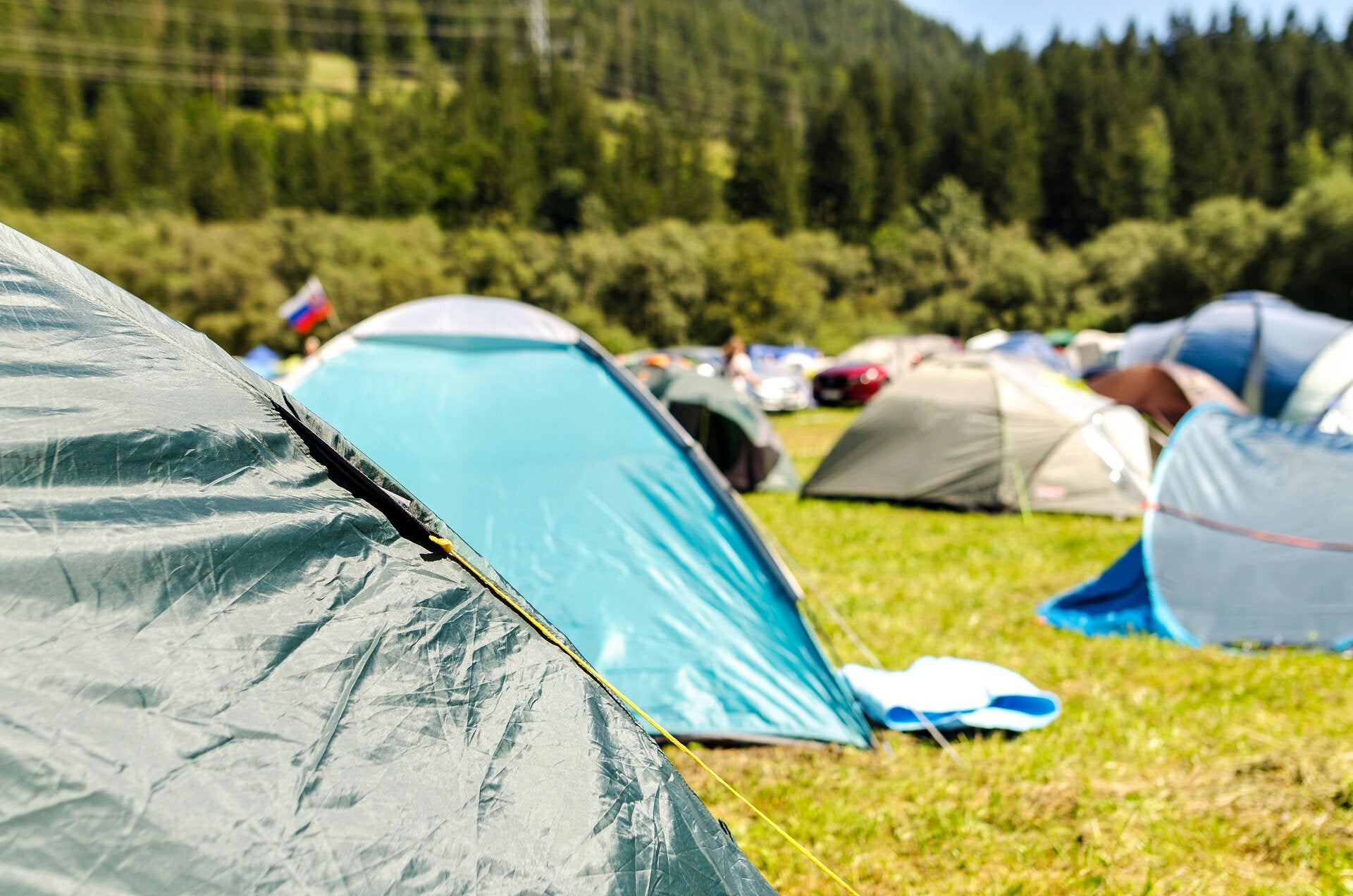
Picture this: you're under a sky full of stars, surrounded by nature, taking a break from the usual chaos, and making amazing memories. Sounds good, right? If you’re thinking about going camping for the first time, you’re in the right place—we’ve got you covered!
Disclosure: As an Amazon Associate, we may earn from qualifying purchases, which means we may earn commissions on purchases made through our links, at no extra cost to you. Learn more about our disclosure here.
1. Choose the Right Campsite

For first-time campers, choosing a well-equipped campground makes the experience much more enjoyable. Look for sites with essentials like clean restrooms, drinking water, and fire pits. National parks, provincial parks, and private campgrounds are excellent options for beginners. Before booking, review the campground’s website for amenities and read guest reviews to know what to expect, ensuring a smooth and stress-free start to your camping adventure.
2. Essential Gear Checklist

Having the right camping gear is essential for a safe and enjoyable trip, especially for first-time campers. Packing smart ensures comfort, safety, and a stress-free experience. Here’s a beginner-friendly camping checklist:
- Tent: Choose one that fits your group and is suitable for the expected weather conditions.
- Sleeping bag & pad: Select options appropriate for the season to stay warm and comfortable.
- Camping stove & fuel: Essential for preparing hot meals outdoors.
- Cookware & utensils: Lightweight, compact, and easy to clean.
- Flashlight or headlamp: Bring extra batteries for night-time visibility.
- Clothing layers: Weather can change quickly, so pack versatile layers.
- First-aid kit: Always have one for minor injuries or emergencies.
- Map & compass or GPS: Helpful for navigating trails and hikes.
- Bug spray & sunscreen: Protect skin from insects and sun exposure.
Tip: Organizing your camping gear checklist ahead of time can save stress at the campsite and make the first camping experience more enjoyable.
3. Setting Up Camp

Setting up your tent during daylight is always recommended, especially for first-time campers. It provides time to get familiar with the surroundings and ensures a smoother setup. Choose a flat, clear spot free of rocks, roots, or bumps for a comfortable night’s sleep. A level surface also helps keep your tent stable in windy or rainy conditions. Always secure your tent properly—doing so can make all the difference if the weather changes unexpectedly.
---ADVERTISEMENT---
4. Campfire Safety & Cooking

Always build campfires in designated fire rings and follow local regulations regarding size and usage. Safety is the top priority—never leave firewood or kindling unattended, and always have water nearby to extinguish the fire if needed.
When it comes to camping meals, simplicity works best. Easy-to-make options like sandwiches, foil-pack dinners cooked over the fire, and instant oatmeal provide satisfying, stress-free meals without adding extra work. Preparing simple camping recipes ensures everyone stays well-fed and can focus on enjoying the outdoors safely.
5. Respect Nature & Leave No Trace

Respect nature and fellow campers by following the Leave No Trace guidelines:
- Pack out all trash: Leave your campsite cleaner than you found it.
- Observe wildlife from a distance: Never feed or disturb animals.
- Leave natural items as they are: Rocks, plants, and keepsakes should stay in place.
- Respect quiet hours: Avoid loud music or disruptive noise to maintain a peaceful environment.
Following these responsible camping practices helps protect the environment, preserves natural beauty, and ensures a positive experience for everyone at the campsite.
---ADVERTISEMENT---
6. Stay Comfortable & Safe

To make any camping trip safe and enjoyable, keep a few simple tips in mind:
- Check the weather forecast: Unexpected storms can ruin a trip, so plan ahead to stay prepared.
- Store food securely: Proper storage prevents wildlife from being attracted to your campsite.
- Share your camping plans: Let a friend or family member know your itinerary and expected return time. This small step adds a big layer of safety.
Following these camping tips ensures a worry-free outdoor adventure, letting everyone focus on enjoying nature, bonding with companions, and creating lasting memories.
5. Respect Nature & Leave No Trace

Respect nature and fellow campers by following the Leave No Trace guidelines:
- Pack out all trash: Leave your campsite cleaner than you found it.
- Observe wildlife from a distance: Never feed or disturb animals.
- Leave natural items as they are: Rocks, plants, and keepsakes should stay in place.
- Respect quiet hours: Avoid loud music or disruptive noise to maintain a peaceful environment.
Following these responsible camping practices helps protect the environment, preserves natural beauty, and ensures a positive experience for everyone at the campsite.


Add comment
Comments